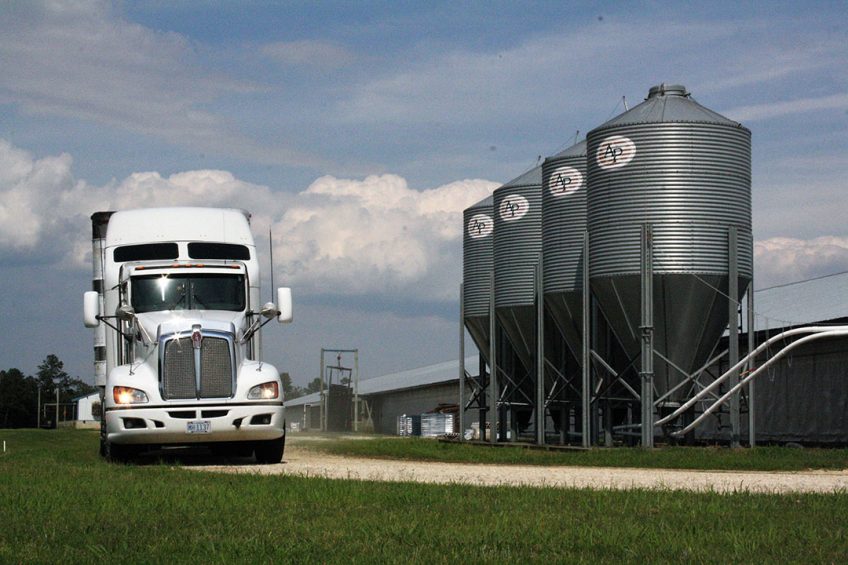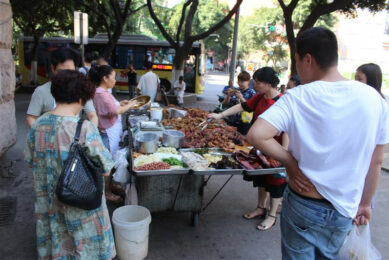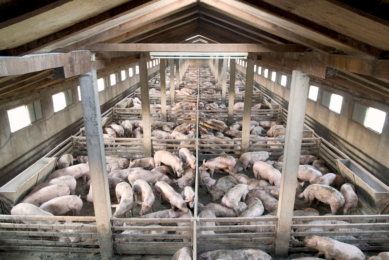Covid-19: US pork sector rocked by company closure

A major US hog producer is closing due to the economic effects of the pandemic. The number of pigs backed up on US farms is being disputed, and the option for US farmers to apply for aid related to Covid-19 has been extended. This is an overview of the most recent Covid-19 developments in the North American market.
In an announcement that has shocked the industry, North Carolina-based Maxwell Foods (parent company Goldsboro Milling) has stated it will permanently close its hog production operations due to ‘projected financial losses’.
Ful closure by mid-2021
In a press release, Maxwell Foods stated that ‘the continuing low prices paid for our product, together with the effects of the Covid-19 pandemic, make the current and projected financial losses unsustainable for the company to continue operating’. Leaders at the North Carolina Pork Council added that ‘We are deeply saddened that the persistent and untenable economic conditions mean that Maxwell Foods has reached [this] difficult decision’. The 31 year-old firm will begin the shutdown this month with the aim of fully closing by mid-2021.
‘Unprecedented in our industry’
On Monday, Genesus CEO Jim Long called the situation “unprecedented in our industry” in his weekly emailed industry report. “There has never been a liquidation plan of this magnitude by one entity in the US swine industry history. It appears that there were no buyers for the business.”
Long added that “if one needs confirmation sow herd liquidation is ongoing, this is it. Who knows if this market continues as is, who might be the next large entity to stop breeding? To assume there won’t be [another closure] is reckless.”

Covid-19 Up-date
What impact is the pandemic having on the global pig sector and how are they dealing with it.
On-farm backup levels disputed
Several weeks ago, economist Steve Meyer estimated that 2 million hogs were backed up on US farms. The National Pork Producers Council (NPPC) warned at the time that if more workers at packing plants are infected with Covid-19, the back-up ‘will swell precipitously’ and asked the US Congress to provide more emergency relief for hog farmers.
However, Long stated: “We believe few if any hogs are backed up”, and called the claims of large-scale back-ups being made by commodity traders and others “a crude but effective way to depress hog prices”.
Pig farmers have handled the backup by keeping more pigs on-farm than normal, euthanisation, donation to the needy, and by slowing pig growth and reducing slaughter weights. The US Department of Agriculture (USDA) Economic Research Service’s July ‘Livestock, Dairy, and Poultry Outlook’ indicates that slaughtered pig weights have fallen almost 4% since their peak in mid-May.

Read the previous Covid-19 update from North America
Long noted that overall, US pig production is decreasing, with the number of US breeding sows having dropped by 150,000 in the first 6 months of 2020. “Barns are becoming available,” he stated. “When does the price increase? When does the market realise there are not millions of hogs backed up. When is that? Hopefully sooner rather than later.”
USDA funding extension
Last Friday, August 7, almost 20 US farm organisations asked the USDA to extend the application deadline for the Coronavirus Food Assistance Program (CFAP) beyond August 28. The programme provides much-needed financial support to livestock and other producers affected by Covid-19.
The USDA responded on Tuesday. Now, US farmers impacted by the pandemic have until September 11 to apply for CFAP payments.
Effects of Covid-19 on pork plants in Canada
The number of Covid-19 infections at a Maple Leaf Foods pork plant in the province of Manitoba has increased further. The union for the 2,000 workers at the plant said on August 7 that there are now 8 people infected, “We are expecting that this number will continue to increase, and we are renewing our call on Maple Leaf to halt production… until this situation is under control.”
Reform of pricing
Meanwhile, the Western Canadian pork industry is calling for changes to hog pricing to ensure producers are going to stay in the industry – a reflection of long-term pricing strategy problems, but exacerbated by the pandemic.
The hog producer organisations in Manitoba, Saskatchewan, Alberta and British Columbia recently presented a report on pricing to Canada’s main hog slaughter companies. “Finding a reasonably equitable method of sharing the value of the pig is fundamental to the long-term sustainability of the industry for both producers and packers,” they stated. “The fact that the overall growth in the western Canadian hog sector is near zero and existing barn maintenance is at an extremely low level suggests an industry in significant decline if not directly toward collapse.”

Coronavirus can spread over 8m at a cutting floor
The pricing structure (with prices based on US market conditions expressed through futures contracts, not Western Canadian supply and demand) causes chronic undervaluing of Western Canadian pig prices, and farmers facing “incredible negative volatility, as losses become catastrophic and unpredictable.” Additional problems include slaughter plants running well under capacity and an inability of the sector to fill strong export demand from Asia. The groups call the future of pig production in Western Canada, if nothing changes, “bleak.”
In total 2 major pork processors have responded with temporary measures. Maple Leaf Foods and Olymel have both just offered to pay CAN$ 20 (US$ 15) more per pig to farmers for at least 13 weeks, as long as farmers extend their contracts.
‘Black swan’ events such as Covid-19
Meanwhile, US economist Dustin Baker noted that volatile market conditions and repeated ad hoc disaster payments demonstrate that improved longer-term, market-based support for livestock producers is needed.
Baker noted that as of July 27, US pork producers have received $ 416 million in CFAP assistance. “These payments, while welcomed by the industry, pale in comparison to the economic harm faced by the sector,” he said. “According to a study commissioned by the National Pork Producers Council, hog farmer losses will approach $ 5 billion by year-end due to a decline in market prices, euthanasia and carcass disposal. While Congress is currently considering further aid for the industry to subsidize producers for losses incurred, there also should be consideration into longer-term support for the industry to better weather similar black swan events.”

Read more about pig health in the Pig Progress Health Tool
Baker noted that the structure of one such program already exists and it could, with slight changes, be used as a sustainable, long-term framework for future disaster assistance.
Lawsuits by meat plant workers
Meanwhile, the number of lawsuits initiated by workers or families of deceased workers against major US meat processors for negligence in preventing Covid-19 infection is growing.
In April, a meat plant worker in Missouri (with the help of an advocacy group) began a lawsuit against Smithfield Fresh Meats for endangering employees during the pandemic. In May, the family of a meat processing plant worker who died from Covid-19 began suing his employer JBS over inadequate safety precautions related to preventing virus transmission.
In early July, a group of worker advocacy organisations filed a lawsuit at the national level against JBS and Tyson Foods, alleging racial discrimination in their Covid-19 response. In late July, another class action complaint over negligence in virus transmission prevention was filed in California against Central Valley Meat Company.
Pork export to China
Chinese-owned US pork processor WH Group expects pork exports from the US to China to fall in the 2nd half of the year, a result of Covid-19 depressing pig volumes being handled at US processing plants and resulting price increases. China’s pork imports were very high in the first half of 2020, especially from the US.
The company added that although China’s hog herd is growing again, ongoing outbreaks of African Swine Fever and rising grain costs may keep hog prices high.











